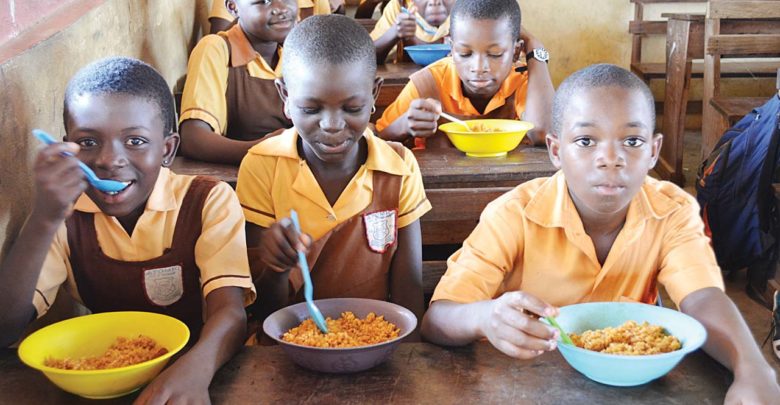
The United Nations World Food Programme today urged governments in West Africa to invest more money in school meal programmes so these can act as a catalyst for improved economic and social welfare communities across the region. The call was made on African Day of School Feeding which is being celebrated for the third year in a row.
WFP partners on school meals programmes with some 40 countries in Africa, providing more than nine million school children annually with daily meals in school. In some countries, WFP itself implements the school meals programme while in others it offers technical support to the government provider. In most countries, WFP offers a combination of both services.
“It is a win-win opportunity which governments must seize,” said Abdou Dieng, WFP Regional Director for West and Central Africa. “Children enjoy healthy meals that make it more likely that they will stay in school and learn for a better future while jobs are created and businesses develop.”
Increasingly, school meals in Africa are of the home-grown variety. This means that the food for the meals is sourced from smallholder farmers within the community. The idea is that home-grown school meals provide local farmers and businesses with a predictable outlet for their products, leading to more stable incomes, more investment, higher productivity and the creation of jobs for youth and women in the communities concerned.
In Burkina Faso, for example, the introduction of yoghurt in school meals has had multiple benefits – a women’s group that collects milk locally has recently set up a processing plant for yoghurt that is now delivered to schools by young people on motorcycles.
Some governments in the region are showing a growing interest in investing more in national school meals programmes. The Government of Benin has allotted US$47 million to feed 400,000 children over the course of five years in partnership with WFP, using a home-grown school meals model.
“We applaud Benin for showing leadership in investing in its future generation. This is a standard that other governments in the region should follow,” Dieng said.
WFP’s regional school meals programme, which aims to assist about 2.7 million children this year, faces a US$60 million funding gap. Without proper financing, the programme will fall short, leave many vulnerable students hungry and at risk of dropping out of school.
APO




